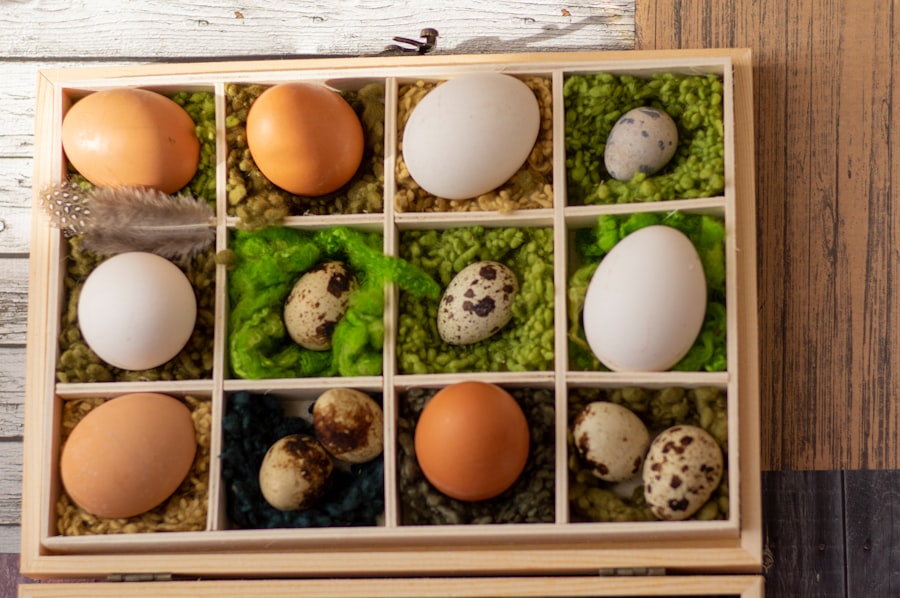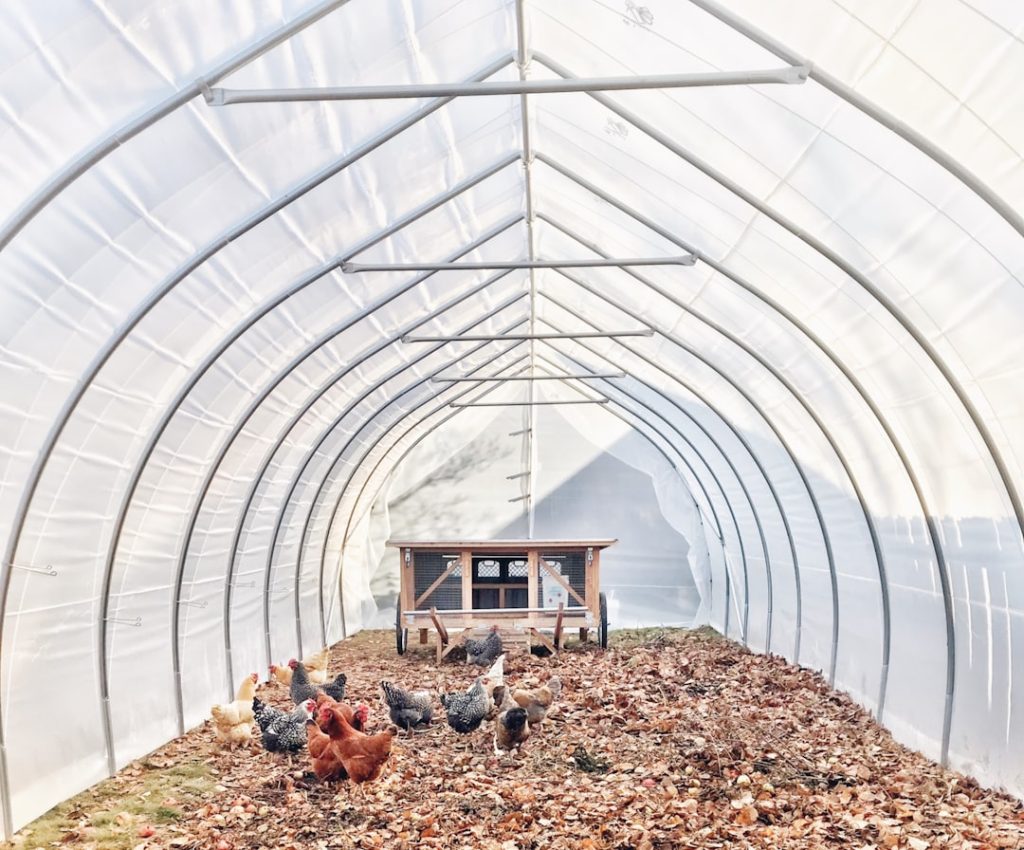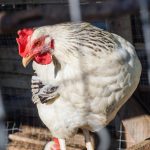When selecting chicken breeds, it’s essential to consider your specific goals and requirements. Different breeds have distinct characteristics, with some excelling in egg production and others in meat yield. Popular egg-laying breeds include Rhode Island Red, Leghorn, and Australorp, while Cornish Cross and Freedom Ranger are known for meat production.
Other factors to consider when choosing a breed include climate adaptability, space requirements, and temperament. Some breeds are better suited to cold or warm environments, while others may require more space or have specific personality traits. For families with children, docile and friendly breeds may be preferable.
Availability of chicks or hatching eggs is another important consideration. Some breeds are more readily accessible than others, so research is necessary to find reputable sources. Whether purchasing from hatcheries or breeders, it’s crucial to ensure the health and quality of the birds to meet your specific needs.
Table of Contents
- 1 Building a Suitable Coop
- 2 Providing Proper Nutrition
- 3 Ensuring Good Health and Hygiene
- 4 Handling and Interacting with Chickens
- 5 Managing Egg Production
- 6 Dealing with Predators and Pests
- 7 FAQs
- 7.1 What are the basic requirements for keeping chickens in New Zealand?
- 7.2 What type of coop is suitable for keeping chickens in New Zealand?
- 7.3 What should I feed my chickens in New Zealand?
- 7.4 How do I protect my chickens from predators in New Zealand?
- 7.5 What are the common health issues for chickens in New Zealand?
- 7.6 Are there any regulations or restrictions for keeping chickens in New Zealand?
Key Takeaways
- Consider the climate, space, and purpose of raising chickens when choosing the right breed for your flock.
- When building a suitable coop, prioritize ventilation, insulation, and predator-proofing to ensure the safety and comfort of your chickens.
- Provide proper nutrition by offering a balanced feed, fresh water, and access to grit and oyster shells for calcium.
- Ensure good health and hygiene by regularly cleaning the coop, monitoring for signs of illness, and providing necessary vaccinations and treatments.
- Handle and interact with chickens gently and regularly to build trust and minimize stress, which can lead to better egg production.
- Manage egg production by providing nesting boxes, collecting eggs daily, and ensuring a balanced light and dark cycle for the chickens.
- Deal with predators and pests by securing the coop with locks, using deterrents, and regularly inspecting for signs of infestation.
Building a Suitable Coop
Providing Adequate Space
First and foremost, it’s important to provide adequate space for your chickens. The general rule of thumb is to allow 2-3 square feet of space per bird inside the coop, and 8-10 square feet per bird in the outdoor run. This will ensure that your chickens have enough room to move around comfortably and engage in natural behaviors such as scratching and dust bathing.
Considering Ventilation, Lighting, and Insulation
In addition to space, it’s important to consider ventilation, lighting, and insulation. Proper ventilation is essential for maintaining good air quality and preventing moisture buildup, which can lead to respiratory problems and other health issues. Natural light is also important for the well-being of your chickens, so be sure to include windows or skylights in your coop design. Finally, insulation is important for regulating temperature and keeping your chickens comfortable in both hot and cold weather.
Coop Layout and Security Measures
When it comes to the layout of your coop, it’s important to include roosts for your chickens to perch on at night, as well as nesting boxes for them to lay their eggs. Nesting boxes should be placed in a quiet, secluded area of the coop to provide privacy and encourage egg laying. It’s also important to include easy access for cleaning and maintenance, such as removable roosts and nesting boxes, as well as large doors or hatches for easy entry and exit. Finally, it’s important to consider security measures to protect your chickens from predators. This may include burying hardware cloth around the perimeter of the coop to prevent digging predators, as well as installing locks and latches on doors and windows to prevent entry by raccoons, foxes, or other predators.
By carefully considering these factors and designing a well-built coop, you can provide a safe and comfortable home for your flock.
Providing Proper Nutrition

Proper nutrition is essential for the health and well-being of your chickens. A balanced diet will not only support good egg production and overall health but also contribute to strong eggshells and healthy feathers. When it comes to feeding your chickens, there are several important factors to consider.
A good quality commercial feed is the foundation of a chicken’s diet. Look for a feed that is specifically formulated for laying hens, as this will provide the necessary nutrients for egg production. In addition to a commercial feed, it’s important to provide access to fresh water at all times.
Chickens can drink a surprising amount of water each day, especially during hot weather or when laying eggs, so be sure to provide a constant supply of clean water. In addition to commercial feed, it’s important to supplement your chickens’ diet with fresh fruits and vegetables, as well as occasional treats such as mealworms or scratch grains. These treats can provide additional nutrients and variety in their diet, as well as serve as enrichment and entertainment for your flock.
It’s also important to provide access to grit and oyster shell. Grit helps chickens digest their food by grinding it up in their gizzards, while oyster shell provides calcium for strong eggshells. Both grit and oyster shell should be available free-choice in separate containers so that chickens can consume them as needed.
Finally, it’s important to monitor your chickens’ body condition and adjust their diet as needed. Overweight or underweight chickens may require adjustments to their feed rations, so be sure to monitor their weight and body condition regularly. By providing a balanced diet that meets their nutritional needs, you can support the health and productivity of your flock.
Ensuring Good Health and Hygiene
Maintaining good health and hygiene is essential for keeping your chickens happy and productive. By implementing good management practices and monitoring your flock regularly, you can prevent disease and ensure that your chickens thrive. One of the most important aspects of maintaining good health is preventing disease through biosecurity measures.
This includes limiting exposure to wild birds and other poultry flocks, as well as practicing good hygiene when handling your chickens or their equipment. It’s also important to quarantine new birds before introducing them to your existing flock, as this can help prevent the spread of disease. Regular health checks are also important for monitoring the well-being of your flock.
This includes checking for signs of illness or injury, as well as monitoring egg production and overall behavior. By catching potential health issues early, you can take proactive measures to address them before they become more serious. In addition to monitoring their health, it’s important to maintain a clean and hygienic environment for your chickens.
This includes regularly cleaning their coop and nesting boxes, as well as providing clean bedding material such as straw or wood shavings. It’s also important to regularly remove droppings from the coop and run area to prevent the buildup of bacteria and parasites. Regular parasite control is also important for maintaining good health.
This may include regular deworming treatments as well as controlling external parasites such as mites or lice. By implementing these measures and maintaining good hygiene practices, you can help prevent disease and ensure that your chickens remain healthy and productive.
Handling and Interacting with Chickens
Interacting with your chickens is not only enjoyable but also an important aspect of raising a happy and healthy flock. By handling your chickens regularly and providing enrichment activities, you can help socialize them and build trust, as well as monitor their health and behavior. When handling your chickens, it’s important to approach them calmly and gently.
Avoid making sudden movements or loud noises that could startle them, as this can cause stress or fear. Instead, speak softly and move slowly when interacting with your birds. Regularly handling your chickens from a young age can help socialize them and make them more comfortable with human interaction.
This can make it easier to handle them for health checks or other necessary tasks as they grow older. It’s also important to spend time with your chickens outside of their coop or run area, allowing them to explore new environments and providing opportunities for enrichment. Providing enrichment activities such as hanging treats or toys in their coop or run area can help keep your chickens entertained and engaged.
This can help prevent boredom and reduce stress-related behaviors such as feather picking or aggression. Enrichment activities can also provide mental stimulation and encourage natural behaviors such as scratching and pecking. In addition to handling and enrichment activities, it’s important to observe your chickens regularly to monitor their behavior and overall well-being.
This includes watching for signs of illness or injury, monitoring their egg production, and observing their interactions with other flock members. By interacting with your chickens regularly and providing enrichment activities, you can help build a strong bond with your flock while promoting their overall well-being.
Managing Egg Production

Providing a Suitable Nesting Area
One of the most critical factors in managing egg production is providing a suitable nesting area for your hens. Nesting boxes should be placed in a quiet, secluded area of the coop to provide privacy and encourage egg laying. Clean bedding material such as straw or wood shavings should be provided in the nesting boxes to create a comfortable environment for laying eggs.
Collecting and Monitoring Eggs
In addition to providing a suitable nesting area, it’s essential to collect eggs regularly to prevent them from being damaged or eaten by other flock members. Eggs should be collected at least once per day, preferably more often during hot weather or if you have broody hens that may try to hatch eggs in the nesting boxes. Monitoring egg production is also crucial for identifying potential issues such as low egg production or abnormal eggs.
Maintaining a Balanced Diet and Healthy Environment
It’s also important to provide a balanced diet that meets the nutritional needs of laying hens. A good quality commercial feed formulated for laying hens is essential for supporting good egg production, as well as providing access to fresh water at all times. By implementing these measures and monitoring egg production regularly, you can support the productivity of your hens while ensuring their overall health.
Dealing with Predators and Pests
Dealing with predators and pests is an ongoing challenge when raising chickens. Predators such as raccoons, foxes, hawks, and snakes pose a threat to your flock, while pests such as mites, lice, and rodents can cause problems in the coop. By implementing good management practices and taking proactive measures, you can help protect your chickens from these threats.
One of the most effective ways to protect your flock from predators is by securing their coop and run area with sturdy fencing and hardware cloth. This can help prevent entry by digging predators such as raccoons or foxes while also providing protection from aerial predators such as hawks. It’s also important to secure doors and windows with locks or latches to prevent entry by predators.
In addition to securing their living area, it’s important to supervise free-ranging activities if you allow your chickens to roam outside of their enclosed area. Supervised free-ranging can provide enrichment for your flock while allowing them access to natural foods such as insects and grasses. However, it’s important to be vigilant for signs of predators while they are free-ranging and bring them back into their secure area if necessary.
Regular pest control measures are also important for preventing infestations by mites, lice, or rodents in the coop. This may include regular cleaning of the coop and nesting boxes, as well as using diatomaceous earth or other natural pest control methods. It’s also important to monitor your flock regularly for signs of pests such as feather loss or abnormal behavior that may indicate an infestation.
By implementing these measures and taking proactive steps to protect your flock from predators and pests, you can help ensure that they remain safe and healthy while minimizing potential threats. Regular monitoring of their living area for signs of entry by predators or infestations by pests can help prevent problems before they become more serious.
If you’re looking for more ideas on how to keep chickens in New Zealand, you might want to check out this article on large chicken coop ideas. It offers some great tips and inspiration for creating a comfortable and spacious living environment for your feathered friends.
FAQs
What are the basic requirements for keeping chickens in New Zealand?
In New Zealand, basic requirements for keeping chickens include providing a secure and predator-proof coop, access to fresh water, appropriate feed, and space for the chickens to roam and forage.
What type of coop is suitable for keeping chickens in New Zealand?
A suitable coop for keeping chickens in New Zealand should be well-ventilated, provide protection from the elements, and have nesting boxes for egg-laying. It should also be secure to protect the chickens from predators.
What should I feed my chickens in New Zealand?
Chickens in New Zealand should be fed a balanced diet that includes a commercial poultry feed, as well as access to fresh greens, grains, and occasional treats such as mealworms or kitchen scraps.
How do I protect my chickens from predators in New Zealand?
To protect chickens from predators in New Zealand, it is important to secure the coop with strong fencing, lockable doors, and predator-proof latches. Additionally, consider using motion-activated lights or alarms to deter predators.
What are the common health issues for chickens in New Zealand?
Common health issues for chickens in New Zealand include parasites, respiratory infections, and egg-laying problems. It is important to regularly monitor the health of your chickens and seek veterinary care if any issues arise.
Are there any regulations or restrictions for keeping chickens in New Zealand?
In New Zealand, there may be local regulations or restrictions on keeping chickens, such as limits on the number of chickens allowed or requirements for coop placement. It is important to check with your local council for any specific regulations.
Meet Walter, the feathered-friend fanatic of Florida! Nestled in the sunshine state, Walter struts through life with his feathered companions, clucking his way to happiness. With a coop that’s fancier than a five-star hotel, he’s the Don Juan of the chicken world. When he’s not teaching his hens to do the cha-cha, you’ll find him in a heated debate with his prized rooster, Sir Clucks-a-Lot. Walter’s poultry passion is no yolk; he’s the sunny-side-up guy you never knew you needed in your flock of friends!







